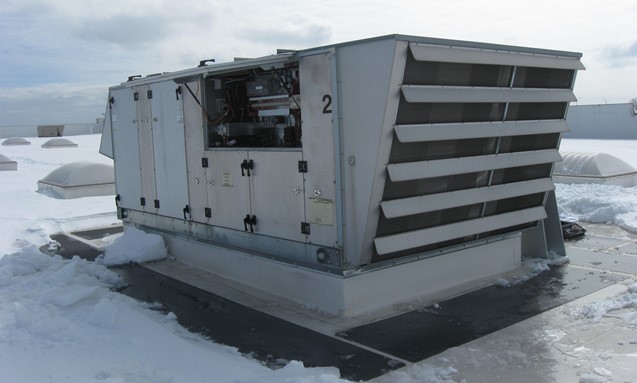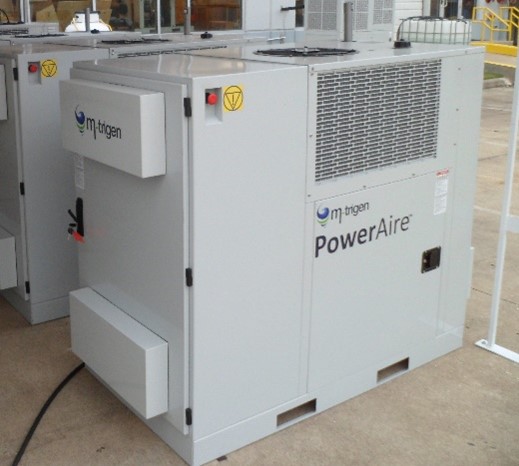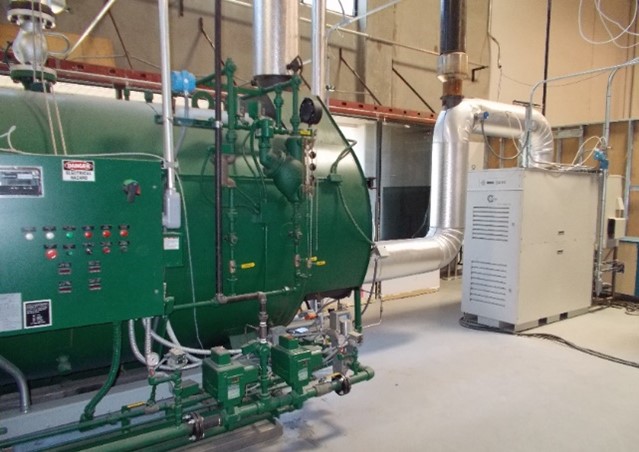UTD Impacts > Increasing Efficiency and Environmental Performance
Increasing Efficiency and Environmental Performance
Advancing Economical Energy-Efficient Equipment and Systems

Residential and Light Commercial Equipment Innovations
UTD is advancing the availability and application of economical high-efficiency equipment for residential and light commercial end users, such as heat pumps that provide >100% efficiency and superior cold-weather performance while being fueled with gas. UTD is validating or helping optimize performance, identifying best installation practices, supporting pilot field tests, or providing other technical or market-connection support to companies such as those listed below.

Large Commercial and Industrial Equipment Innovations
UTD is advancing the availability and application of economical high-efficiency equipment for large commercial and industrial end users, such as new condensing roof-top HVAC units (cRTUs), innovative energy recovery devices, and more efficient production methods. UTD is validating or helping optimize performance, identifying best installation practices, supporting pilot field tests, or providing other technical or market-connection support to companies such as those listed below.
Beckett Condensing Furnace Modules
Boiler Room Equipment Inc. Heat Sponge
TMCAqua Energy and Water Recovery
High Efficiency Dryer for Bulk Food Processing: Contact UTD to discuss licensing opportunities. Summary report

Food Service Equipment Innovations
UTD is advancing the availability and application of economical equipment for commercial food service that offers higher energy efficiency, superior cooking performance, or other benefits to end users. UTD is validating or helping optimize performance, identifying best installation practices, supporting pilot field tests, assessing emissions, or providing other technical or market-connection support to companies such as those listed below.

Integrated Energy System Innovations
UTD is advancing the application of economical integrated energy systems for end users, such combination water heating and space conditioning coupled with on-site PV and optional CHP. UTD is validating and optimize performance, identifying best installation practices, and supporting pilot integrated systems which include low-capacity equipment or other innovative key components from companies such as those listed below.

Micro Combined Heat and Power Systems <50kW
UTD is advancing the availability and application of new microCHP systems for residential and light commercial applications, which leverage the resiliency, reliability and economy of gas distribution with high-up-time, high-efficiency operation at new smaller-capacity scales. UTD is validating or helping optimize performance, identifying best installation practices, supporting pilot introductions, or providing other technical or market-connection support to companies such as those listed below.

Combined Heat and Power Systems >50kW
UTD is helping more end users achieve high-efficiency combined heat and power operation while leveraging the resiliency, reliability and economy of gas distribution. UTD is developing and field-demonstrating next-generation integrated technologies such as FlexCHP and working with leading companies such as Capstone Green Energy.
Accelerating Environmental Improvements Beyond Efficiency Gains

High Performance Buildings
High Performance Buildings or Net Zero Energy buildings reduce total energy consumption and GHG emissions. UTD’s efforts to advance HPBs include more than 10 years of co-funding to DOE’s Building America program through the efforts of the Partnership for Advanced Residential Retrofit (PARR), as well as developing High Performance Mixed Fuel Home Best Practices Guides for UTD members to use in their customer communications.

Carbon-Negative Renewable Natural Gas
UTD partnered with the California Energy Commission, the U.S. Department of Energy, and leading OEMs to support the technical development of Near Zero Emission engines such as Cummins Westport 6.7L, 8.9L and 11.9L engines, along with improvements in CNG fueling infrastructure. Availability of this equipment allowed Low Carbon Fuel Standards and other mechanisms to increase market demand for Renewable Natural Gas, which can often be carbon negative as well as far less expensive than diesel fuel.

Carbon Capture at End User
UTD is working with innovative companies that are developing equipment and the supporting business models to recover carbon at individual end user locations. Leaders in this rapidly-developing field in GHG reduction include CleanO2.

Air Quality Betterment
UTD has partnered with the California Energy Commission, the South Coast Air Quality Management District, and many others to improve air quality. In addition to the significant reductions in NOx and particular matter arising from UTD’s support to develop Near Zero Emission natural gas engines, UTD has supported the development of specific NOx-reducing products and technologies such as a low-NOx ribbon burner.
Low NOx Ribbon Burner: Contact UTD to discuss licensing opportunities

Methane Emissions Mitigation
UTD is quantifying unburned methane emissions that may occur in some combustion equipment and partnering with manufacturers to mitigate those GHG emissions. Laboratory test results have been presented for example at the ACEEE 2020 Hot Water Forum linked below, in the “New Technologies and Research in Residential Gas Water Heating” session.

Hydrogen as a Clean Transportation Fuel
In partnership with the U.S. Department of Energy, UTD is supporting the development of better ways to fuel heavy-duty vehicles with zero-emission hydrogen, such as revolutionary compressors and more economical pre-cooling systems, and participating in the development of consensus-driven protocols for safe fueling.
Hydrogen Fueling for Heavy Duty Vehicles: Contact UTD for more information
Addressing Other Challenges to Market Transformation

Tools to Assess System Performance
UTD helps end users accurately assess total annualized energy performance of equipment and systems (including integrated gas- and electric-driven), such as by using a Virtual Test Home methodology, which the Emerging Technologies Coordinating Council and others have recognized as creative and useful. Other examples include a tool to more widely apply best practices for CNG fueling stations.

Tools to Assess Efficient Equipment Options
UTD helps individual end users assess the savings from using new high-efficiency equipment and systems, such as a Commercial Food Service Equipment Calculator to help commercial food service end users consider new more efficient equipment choices as they upgrade existing or plan new restaurant operations.

Data to Inform Equipment Modeling
UTD helps develop scientific data and technical information that can improve the accuracy of modeling equipment energy performance for end users and building designers. Through peer-reviewed publications, this data can provide consensus-based updates to performance rating standards or third-party energy simulation programs such as US DOE’s EnergyPlus program.
UTD Resources
UTD Market Impact
